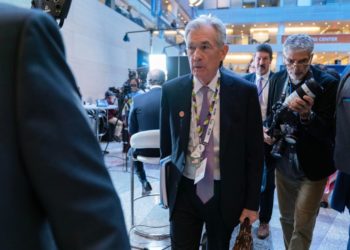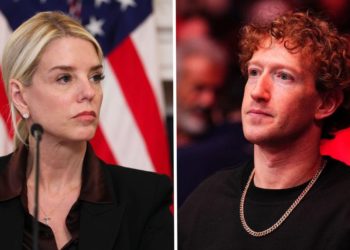As Russia was unleashing its deadliest attack on Ukraine’s capital in nearly a year, President Volodymyr Zelensky arrived in the Canadian Rocky Mountains early Tuesday hoping to meet with President Trump and secure more support for Ukraine from the Group of 7 industrialized nations.
Instead, Mr. Trump left the global powers’ summit early, canceled his meeting with Mr. Zelensky, lamented Russia’s absence from the leaders’ get-together and rejected the idea of issuing a joint statement in support of Ukraine.
A single, brief reference to Ukraine in a summary of the talks’ conclusions, released by the host, Prime Minister Mark Carney of Canada, backed Mr. Trump’s peacemaking efforts and did not directly criticize Russia, though it said the leaders would explore ways to bring more pressure to bear on Moscow.
At a news conference at the end of the summit in Kananaskis, a scenic mountain resort in western Canada, on Tuesday evening, Mr. Carney said that several of the Group of 7 nations would have preferred stronger language on Ukraine.
“There would be things that some of us, Canada included, would say above and beyond what was said in the chair summary,” he said, referring to his own statement.
Instead, Mr. Carney said, he had chosen to focus on securing a joint statement with the other leaders on the escalating crisis in the Middle East. “Given the exceptional, fast-moving situation in Iran, we concentrated on that,” he said.
Ukraine secured a $1.7 billion military support package from Canada at the summit, but little else. Mr. Zelensky canceled a news conference scheduled for Tuesday evening. A spokesman for Mr. Zelensky did not respond to requests for comment.
Mr. Trump had left Kananaskis on Monday night, saying that he needed to return to Washington to deal with the conflict between Israel and Iran. The leaders of the other six countries in the group — Canada, Britain, Germany, Italy, France and Japan — were left to welcome Mr. Zelensky, Mark Rutte, NATO’s secretary general, and other world leaders.
Mr. Carney’s statement said the Group of 7 leaders had “expressed support for President Trump’s efforts to achieve a just and lasting peace in Ukraine” and were “resolute in exploring all options to maximize pressure on Russia, including financial sanctions.”
Addressing the Middle East conflict, the leaders called Iran “the principal source of regional instability and terror,” according to the statement, which added, “We urge that the resolution of the Iranian crisis leads to a broader de-escalation of hostilities in the Middle East, including a cease-fire in Gaza.”
Still, discord over the Middle East was hard to conceal.
Chancellor Friedrich Merz of Germany told a news outlet during the summit that Israel was doing Western powers’ “dirty work” by attacking Iran’s nuclear facilities. President Emmanuel Macron of France, by contrast, warned on Tuesday against using the conflict to force through regime change in Tehran.
“We don’t want Iran to get a nuclear weapon,” Mr. Macron told reporters. “But the biggest error would be to use military strikes to change the regime because it would then be chaos.”
He added: “Does anyone think that what was done in Iraq in 2003 was a good idea? Does anyone think that what was done in Libya the next decade was a good idea? No!”
Mr. Trump’s early departure slowed the pace on the second day of the summit, when leaders from nonmember countries joined the discussions.
President Claudia Sheinbaum of Mexico’s scheduled meeting with Mr. Trump, like Mr. Zelensky’s, was canceled, depriving her of an opportunity to discuss the crisis in the trade relationship between the two nations.
Mr. Carney held significant direct talks with Prime Minister Narendra Modi of India, in which they agreed to restore diplomatic relations. The two nations expelled each other’s top diplomats last year, part of the fallout from Canada’s accusation that India had sanctioned the assassination of a Sikh activist in Canada.
Many of the leaders who attended the Group of 7 talks will be together again in Brussels next week for a NATO summit, which is expected to focus on the conflicts in Ukraine and the Middle East. Mr. Carney said that overall, the meeting in Kananaskis had been a useful display of cooperation at a critical time.
“At a time when multilateralism is under great strain, we got together, we agreed on a number of areas,” he said.
Matina Stevis-Gridneff is the Canada bureau chief for The Times, leading coverage of the country.
The post As G7 Talks End in Canada, Ukraine Comes Away With Little appeared first on New York Times.




